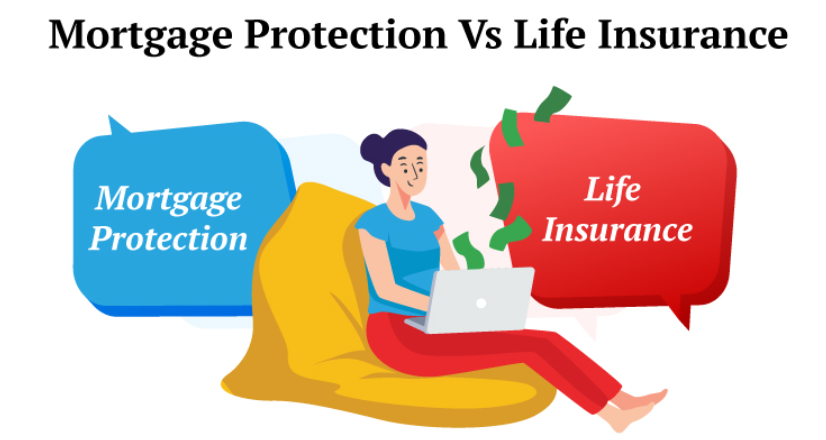When you buy your first home, alongside the joy of becoming a homeowner comes a slew of critical decisions. Among these is whether or not to opt for mortgage protection life insurance (MPI), often offered by your lender as a safeguard to cover your mortgage in case of unforeseen circumstances.
Mortgage protection life insurance is designed to pay off your remaining mortgage balance if you pass away. Additionally, some MPI policies include benefits for job loss or temporary disability, providing the mortgage payments for a certain period during such times. There are even options within some policies to access part of your death benefit if diagnosed with a terminal illness, and some insurers offer a rider that refunds part of your premiums if no claim is made on the policy.
Differentiating MPI from Private Mortgage Insurance (PMI)
It’s crucial not to confuse MPI with private mortgage insurance (PMI). PMI is often required by lenders when your down payment is less than 20% of the home’s value. It protects the lender if you default on your loan, offering you no personal financial protection against default consequences. Unlike PMI, mortgage protection insurance is optional and benefits you directly by settling your mortgage debt if necessary.
Key Features of MPI:
- Direct Payment to Lender: Upon your death, the insurance benefit is paid directly to the lender, not to your family or estate.
- Decreasing Benefit: The potential payout decreases in alignment with your mortgage balance as you make regular payments on your home loan.
- Term Matching: Typically, the term of MPI matches the length of your mortgage, although it can vary depending on factors like age, with some policies adjusting the term for older homeowners.
- No Medical Exam Required: Most MPI policies are guaranteed issue, meaning they do not require a medical exam for qualification, which can be beneficial if you have health issues that might make other life insurance costly or unavailable.
MPI vs. Traditional Life Insurance
While MPI and traditional life insurance policies both offer death benefits, they operate differently. Traditional life insurance allows you to name any beneficiary who then receives the policy’s payout and can use it as they see fit. In contrast, MPI is tied specifically to your mortgage and pays directly to your lender, covering only the balance due.
Pros and Cons of Mortgage Protection Insurance
Advantages:
- Simplicity and Accessibility: Easy to qualify for, often without a medical exam.
- Peace of Mind: Ensures that your mortgage will be paid off, alleviating your family’s financial burden in your absence.
Disadvantages:
- Cost: Typically higher premiums than standard term life insurance due to the guaranteed acceptance.
- Benefit Limitation: The payout is strictly used to cover the mortgage, which might not be the most effective use of funds, depending on your family’s needs.
- Decreasing Value: As your mortgage decreases, so does the policy’s potential benefit, unlike a traditional life insurance policy which could provide a stable financial resource for other uses.
Is MPI Right for You?
Mortgage protection life insurance is worth considering if ensuring your mortgage is paid off in the event of your death is a priority and you face challenges qualifying for standard life insurance due to health reasons. However, it’s advisable to compare this with other life insurance options to find the most cost-effective and beneficial coverage for your circumstances.
Ultimately, whether MPI is the best choice depends on your personal financial situation, health, and how you wish to secure financial stability for your family. Always consider speaking with a financial advisor or an estate attorney to better understand how different policies fit into your overall financial plan and estate strategy.



